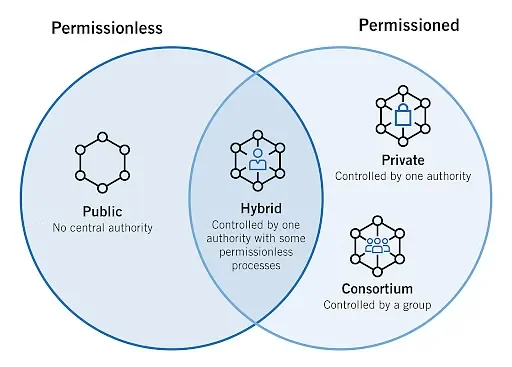In Today’s World Blockchain technology is a widely used term. It is an especially secure security system. This technology enables the existence of cryptocurrencies. It is a solid technology for protecting stored information. Moreover, it is highly secure. It is a mechanism that is proficient at adaptation and can modify.
Blockchain possesses a greatly sophisticated mechanism. Similarly, it is equally efficient. Furthermore, this technology is well-known and extensively utilized. Because of cryptocurrencies, Blockchain Processing has more than 85 million users globally. This figure is projected to continue snowballing in the future. Undoubtedly, this sector has a vast reach worldwide. The need for this technology is expected to increase even more in the future.
What Is Blockchain Technology?

Blockchain Technology is a sophisticated way to enter information. It oppositely records information. Furthermore, the input data is secure and cannot be altered, breached, or tampered with. It additionally ensures the security and protection of the data. The rise in the adoption of cryptocurrencies, driven by digitalization, has resulted in the progress of Blockchain technology.
It keeps track of the financial statements and transactions conducted on multiple computers. Therefore, this technology ensures full transparency and security. The technology is made up of interconnected blocks, with each block being immutable once it is included in the chain.
Features of Blockchain Technology

The distinct mechanism of this technology sets it apart and enhances its utility compared to other systems. It possesses numerous characteristics that typically provide advantages for us. The following are:
1. Characteristics:
Security is ensured by utilizing modern cryptographic techniques for input protection. It prevents unauthorized access to the data by unknown sources. This prevents the hacking of the input data. It also gives it durability.
All personnel involved have visibility of the data stored with blockchain technology. This assists in guaranteeing transparency between users. This function is particularly advantageous for documenting transactions.
2. Immutable Ledger:
Once data is logged using this technology, it cannot be altered. No changes can be made to the data once a block has been added. This aids in ensuring data security and permanence.
Decentralization is advanced by blockchain. It is run by computers all over the world. This implies that no individual has total authority over the information. This proves advantageous for users. It also aids in enhancing overall safety.
‘Private’ is restricted and cannot be accessed. While ‘Permissionless’ is available to everybody. This functionality allows for customization to meet various user requirements.
3. Confidentiality:
Blockchain is well-known for its clear record of transactions. Nonetheless, it also offers numerous characteristics to guarantee confidentiality.
E-signature is utilized by blockchain to verify the authenticity of transactions and ensure their validity. This function is useful in ensuring safety.
4. Accessibility:
Thanks to continuous progress in the industry, blockchain has become increasingly easier to use. This aspect is beneficial for a broad spectrum of viewers. Blockchain offers a range of accessibility options. This demonstrates its advantages.
How Blockchain Technology Works?
Blockchain Functions as a digital idea for storing information. The primary feature of blockchain technology is that information is stored in blocks. The encrypted blocks, linked sequentially, are distributed to all blockchain participants and protected by intricate mathematical puzzles. Therefore, it is also known as Distributed Ledger Technology (DLT).
This process involves a few primary components: blocks, and nodes.
1. Data
Blocks are akin to the sheets of a ledger. The information of multiple transactions is stored in each block. The information, once encrypted within the block, cannot be changed. A blockchain is made of a sequence of these blocks connected via hashes in chronological order.

2. Nodes
Nodes in the blockchain are representative of the entire network participants as well as their computer setups. Once a blockchain is created, all parties involved are given a duplicate copy. The network consists of their computer systems as nodes.

Types of Blockchain Technology
People utilize blockchains differently depending on the situation. Thus, there are primarily four categories of blockchains –

1. Public Blockchain Technology
Public blockchains are open for viewing and utilization by anyone with an internet connection, as implied by their name. No permission is required to join the network.
Because of its high level of transparency, this type of blockchain is well-suited for government voting and fundraising purposes.
2. Private Blockchain Technology
This blockchain network is less extensive than the public network. Typically, smaller firms oversee this type of network. The information is accessible to all organization stakeholders, but not to everyone. This network is also known as Permissioned blockchains and business blockchains by techies.
3. Hybrid Blockchain Technology
This type of blockchain is utilized by organizations to incorporate both public and private blockchains into their system. The ability to choose allows them to decide which information to keep private within the organization and which to make accessible to the public. Smart contracts can verify entry to the general populace.
Real estate firms, retail stores, and heavily regulated industries such as finance effectively utilize hybrid blockchain technology.
4. Consortium Blockchain Technology
The consortium blockchain also called the Federated blockchain, resembles the hybrid blockchain. Nonetheless, specific nodes regulate the initiation and validation of all transactions within blockchains. While the other members can start and receive transactions, validation is only done by validator nodes.
However, Utilizing the consortium blockchain is most beneficial for payment and banking purposes, as multiple banks can establish a network and delegate authority to validator nodes.
Advantages And Disadvantages Of Blockchain Technology
Advantages
The market has seen the recent emergence of blockchain technology, leading to various industries benefiting significantly from its advantages. Here are some benefits that indicate the point you should enroll in a blockchain certification training program in India.
Some of the main advantages are:
- Trustworthy Distributed System
- 0% Interference of Government
- Increased stability
Disadvantages
There are also drawbacks to blockchain technology, as there are various types of attacks occurring within the technology today. Here are a few drawbacks of blockchain technology.
It has some disadvantages such as:
- Issues in Scalability
- Security issues
- Wrapping up
Henry Harvin– Best Blockchain Course

Henry Harvin Institute is a leading provider of upskilling and certification services for students and professionals. Therefore, Henry Harvin ranks as one of the leading educational platforms in India. The Blockchain Course offered by Henry Harvin Institute is among the top Whereas, Blockchain Courses available in several areas. Additionally, the post-graduate program provides a comprehensive blockchain certification that includes theoretical and practical learning for participants.
Why Choose Henry Harvin?
The school offers comprehensive and integrated instruction through dual live interactive sessions. Trainers for the course are professionals with a minimum of a decade of expertise. You will partake in projects related to Cryptocurrency, Core layer, and Blockchain programming. After finishing the course successfully, you will receive certification from Henry Harvin Academy. The government of India also acknowledges the academy. Following the course, Henry Harvin continues to support with internships and ensures placement for one year with a guarantee of 100%. Furthermore, you will receive a gold membership to the Blockchain Academy for one year. This also grants them entry to an endless supply of e-learning resources, boot camps, and hackathons held all year.
The class is most appropriate for those who work as functional managers, have a degree in computer science, are core Java developers, aspire to be engineers, or have a background in finance.
Conclusion
Blockchain Technology is an advanced course that is important for current financial technology. Many young people are eagerly enrolling in courses that cater to their work-life balance, so select one that fits your needs.
Moreover, this technology is in high demand for employment opportunities and to acquire expertise in cryptocurrency. When choosing the course, pay close attention to the requirements and preferred certification. Your passion leads to gaining expertise in this advanced technology.
FAQs
Ans. A blockchain is a distributed and safe data that is used by a network of computer nodes. The data that is contained in a block is defined by the particular blockchain to which it is linked.
Ans. Both newcomers and experienced professionals have the chance to thrive in the promising blockchain industry. There are many blockchain courses accessible to those interested in starting a career in the field.
Ans. The duration of Blockchain Courses is from 12 weeks to 11 months.
Ans. However, the public blockchain is not the most suitable option. Creating a private blockchain to document and store business transactions and data is achievable.
Ans. It holds all the information on financial transactions made with cryptocurrencies.
